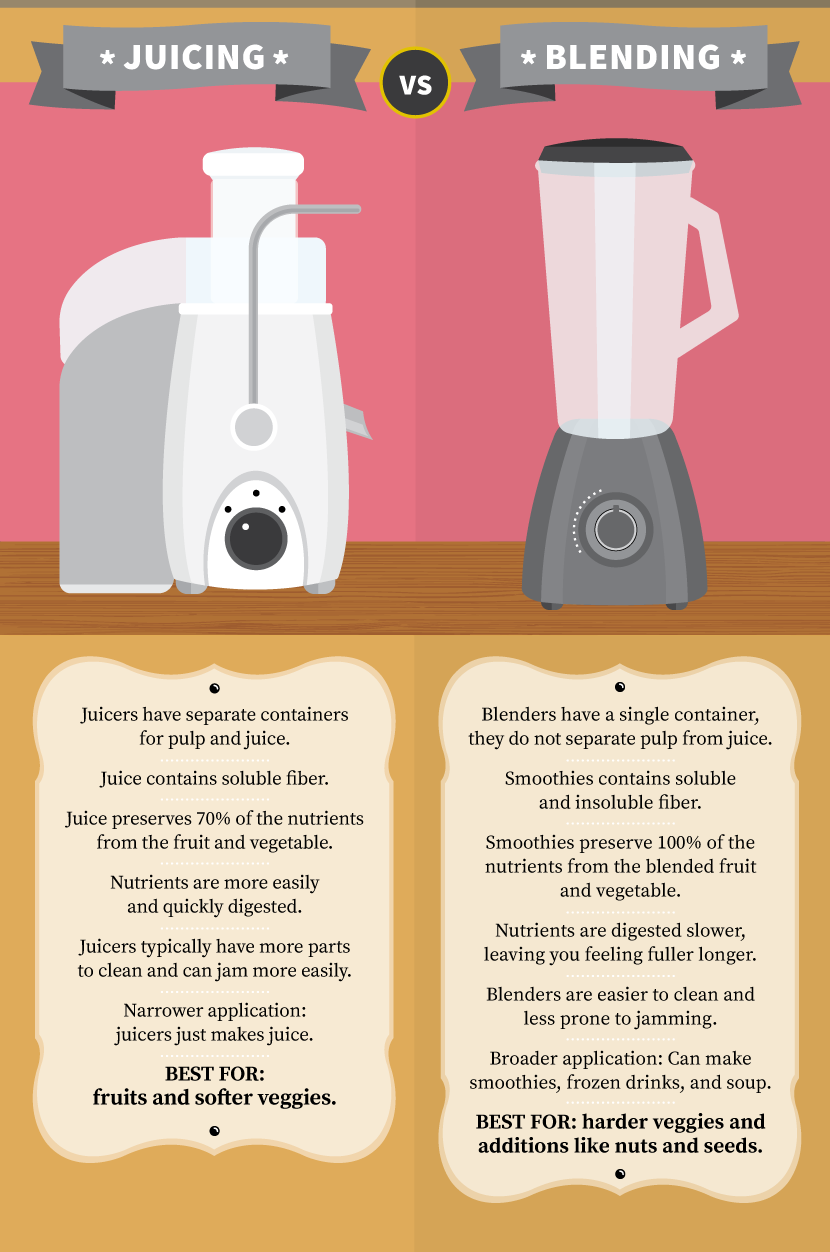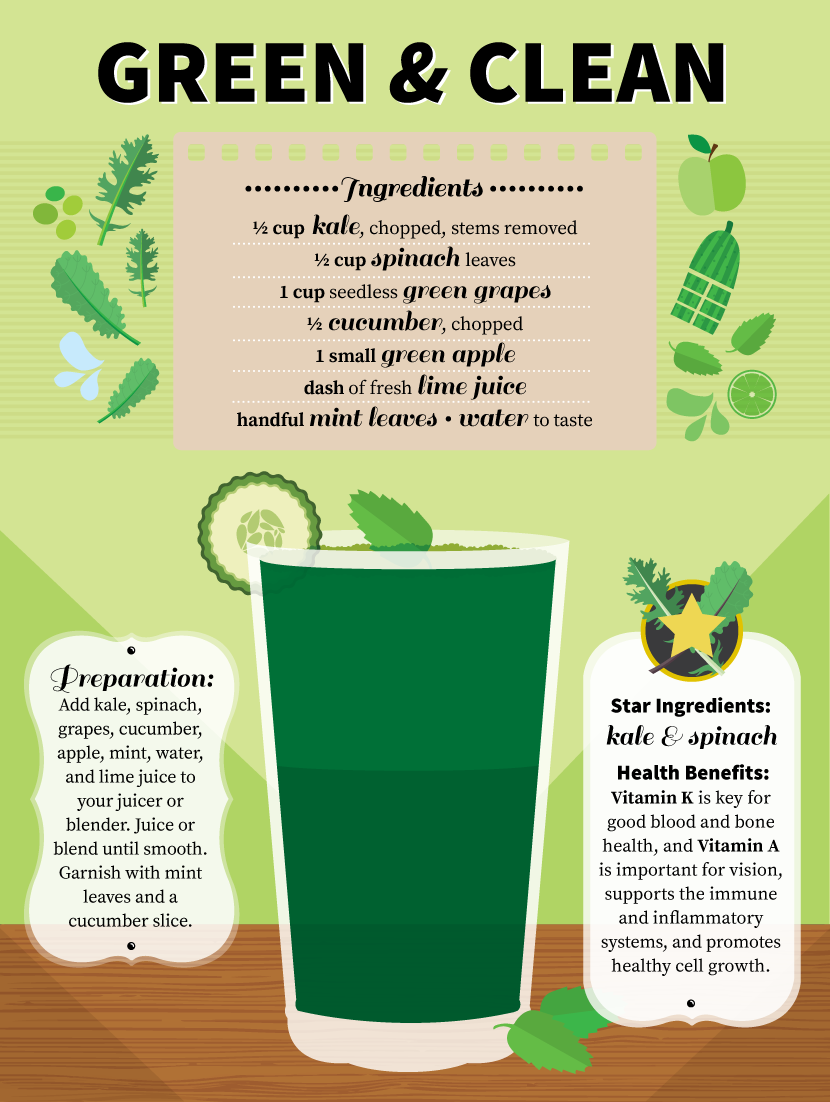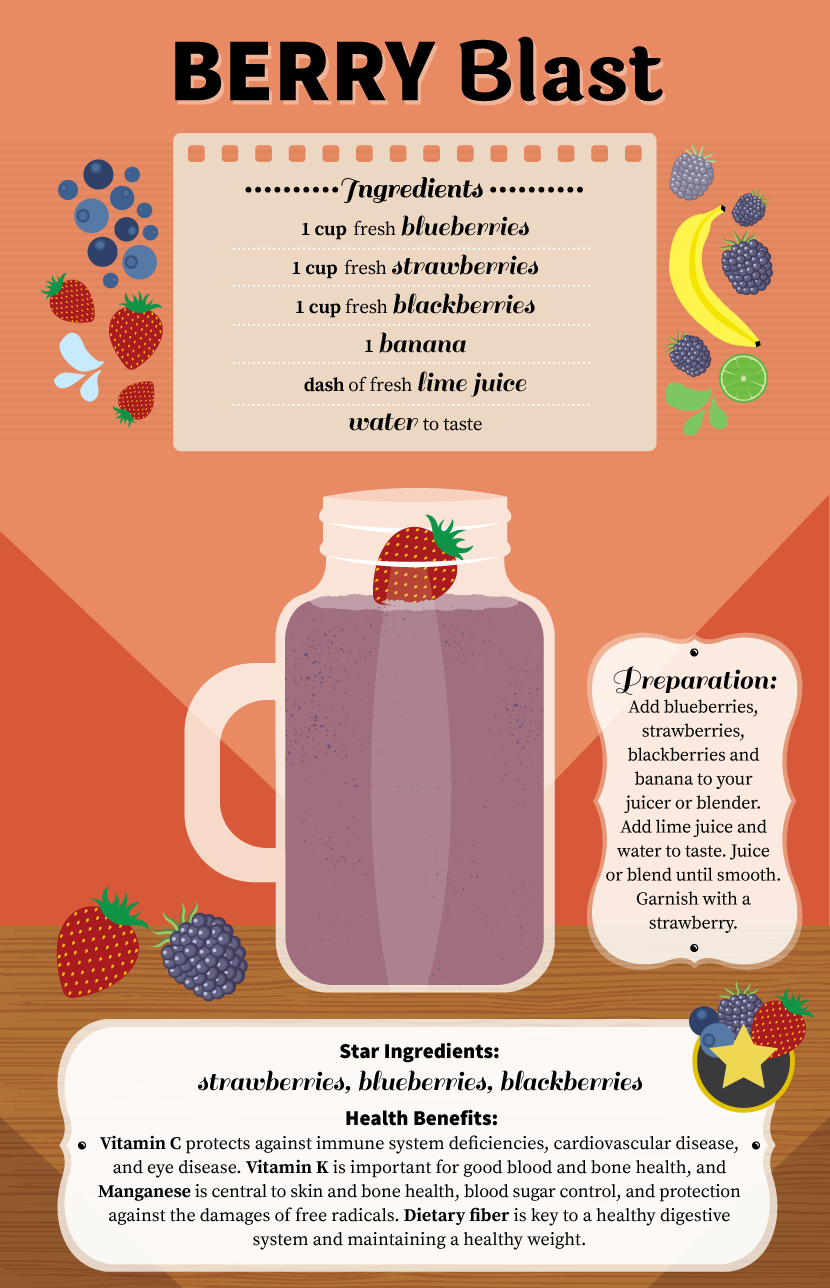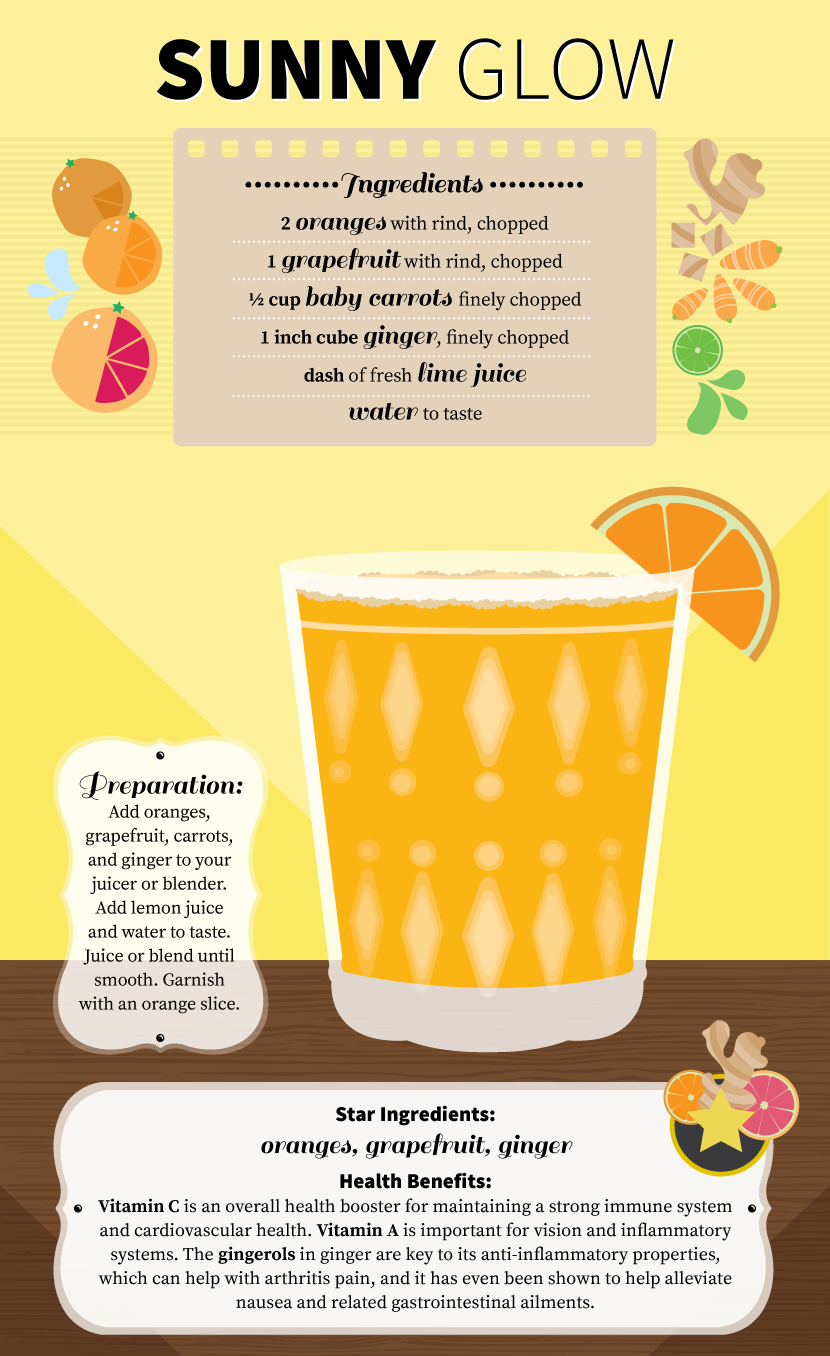How to Juice Your Way to a Healthy Lifestyle
Food trends such as juicing and raw food diets are ubiquitous today.
It seems that almost every week sees the birth of a new healthy lifestyle
bestseller.
Sue Mah, a Toronto-based registered dietician and media spokesperson, says consumers
are always looking for a sexy quick fix to cure their ailments, but a quick solution
isn’t always the correct solution.
Many of the fad diets that dance in and out of popularity miss the big health picture.
Mah explains that a juicing diet, for instance, can be too low in calories,
and because we don’t register liquid calories the same way as we do calories from
solid foods, we can be left feeling hungrier.
Another concern with juicing diets is the lack of protein, which is an important component
Mah says should be included at every meal for satiety and optimal muscle building.
But there are many important upsides, too. One of the benefits of incorporating juicing into
your regular diet is that it helps introduce nutrients from fruits and vegetables that you
may not be getting enough of. You’d be surprised how much kale and spinach you can eat when
it’s blended with the natural sweetness of fruits such as oranges and bananas! Drinking
more healthy juices also helps boost hydration.
These essential tips and recipes will help you juice your way to a healthy lifestyle.
Should I Use a Juicer or a Blender?

Before you begin, it’s helpful to understand the different ways of extracting nutrients from
the ingredients you want to juice.
The central difference between juicers and blenders is that a juicer separates the pulp from
the juice while a blender does not; a blender pulverizes everything you put into it.
Whether you choose to use a juicer or a blender comes down to a combination of nutritional
goals and personal preference.
Juicing your fruits and veggies produces a smooth, pulp-free beverage that contains only
soluble fiber. While this means that you only get around 70 percent of the total available
nutrients in your ingredients, these nutrients will be digested easily and quickly.
Blending your fruit and veg produces a thicker, smoothie-like beverage that contains both
soluble and insoluble fiber. You get 100 percent of the available nutrients, but the insoluble
fiber will slow your digestion of these nutrients. This means you can feel fuller for longer.http://www.rebootwithjoe.com/juicing-vs-blending-facts
Juicers are typically harder to clean than blenders because of their numerous separate parts, and they
can be prone to more frequent jamming. Something else to keep in mind is that juicers will have a harder
time handling solid ingredients that are more solid, such as carrots. If it’s superior flavor you’re after,
juice from a juicer is less likely to exhibit bitterness, while a blender will offer more versatility for
producing smoothies, frozen drinks, and even soup.http://www.consumerreports.org/cro/magazine/2014/03/what-makes-the-best-juice-a-blender-or-a-juicer/index.htm
3 Essential Healthy Juice Recipes

Preparation: Add kale, spinach, grapes, cucumber, and apple to your juicer or blender.
Add mint, water, and lime juice to taste. Juice or blend until smooth. Garnish with mint
leaves and a cucumber slice.
Star Ingredients: Kale and Spinach for Vitamins A and K.http://nutritiondata.self.com/
Health Benefits: Vitamin K is vital for good blood and bone health,http://www.whfoods.com/genpage.php?tname=nutrient&dbid=112
and Vitamin A helps vision, supports the immune and inflammatory systems, and
promotes healthy cell growth.http://www.whfoods.com/genpage.php?tname=nutrient&dbid=106
Pro Tip: If you like your juices a little sweeter, add a spoonful of honey.
If you prefer them a bit sharper, add a few more dashes of fresh lime or lemon juice.

Preparation: Add blueberries, strawberries, blackberries, and banana
to your juicer or blender. Add lime juice and water to taste. Juice or blend until smooth.
Garnish with a strawberry.
Star Ingredients: Blueberries, strawberries, and blackberries for Vitamins C, K,
manganese, and dietary fiber.http://nutritiondata.self.com/facts/fruits-and-fruit-juices/1851/2
Health Benefits: Vitamin C protects against immune system deficiencies,
cardiovascular disease,http://www.webmd.com/diet/the-benefits-of-vitamin-c and eye disease. Vitamin K is important for good blood and
bone health, and manganese is central to skin and bone health, blood sugar control,
and protection against the damages of free radicals.http://www.whfoods.com/genpage.php?tname=nutrient&dbid=77 Dietary fiber is key to
a healthy digestive system and maintaining a healthy weight.http://www.mayoclinic.org/healthy-living/nutrition-and-healthy-eating/in-depth/fiber/art-20043983
Pro Tip: If you’re using a blender and the mixture comes out too thick,
just add it back into the blender with some water until you have the desired consistency.

Preparation: Add oranges, grapefruit, carrots, and ginger to your juicer or blender.
Add lemon juice and water to taste. Juice or blend until smooth. Garnish with an orange slice.
Star Ingredients: Oranges and grapefruit for Vitamin C,http://nutritiondata.self.com/facts/fruits-and-fruit-juices/1966/2 carrots for Vitamin A,http://nutritiondata.self.com/facts/vegetables-and-vegetable-products/3026/2
and ginger for cancer-fighting, anti-inflammatory, and gastrointestinal properties.http://www.whfoods.com/genpage.php?tname=foodspice&dbid=72
Health Benefits: Vitamin C is an overall health booster that helps you maintain a strong
immune system and cardiovascular health. Vitamin A is important for vision and the inflammatory system.
The gingerols in ginger are key to its anti-inflammatory properties, which can help with arthritis
pain, and have even been shown to help alleviate nausea and related gastrointestinal ailments.
Pro Tip: Including the skin or rind on your fruits and vegetables ensures that you make the
most of the nutrients available in your ingredients.
Juice in Moderation
Yes, there is such a thing as too much juicing. In the end, it comes down to balance.
You can help supplement your regular diet with some healthy juices, but you want to make
sure you’re getting a good range of other essential components, such as protein, in your
regular diet to make the most of juicing as part of a well-rounded, healthy lifestyle.
Embed the article on your site

